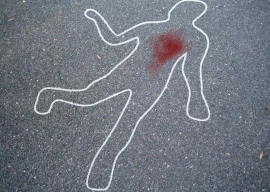
“Patients suffering from depression are the least likely to seek help for it and long term depression can often lead to suicidal behaviour,” said psychologist Amna Jalal. “We have such stigma in our society about ‘seeing a shrink’ that few bother treating depression. They think it to be a matter of pride.”
Medical experts generally describe depression as a state of low mood swings and aversion to activity. Depressed people are liable to feel sad, anxious, empty, hopeless, helpless, worthless, guilty, irritable or restless. They may lose interest in activities that were once pleasurable; experience loss of appetite or overeating; or may contemplate or even attempt suicide. Insomnia, excessive sleeping, fatigue, loss of energy, aches, pains and digestive problems that are resistant to treatment are also potential symptoms of depression.
According to research conducted by Dr Ilyas Mirza, a psychiatrist at Royal London Hospital, UK, mental illness is one of the major healthcare problems in Pakistan and depression the most common, untreated condition. The research found that the overall mean prevalence of anxiety and depressive disorders in Pakistan was 34 per cent and twice as likely among women as men (45.5 per cent for women, 21.7 per cent for men).
Dr Mirza noted that the first stop for many suffering from depression is not the doctor, but a religious healer, since patients and their families tend to have great faith in them. Help from the mainstream healthcare system is usually sought late in the course of the illness.
This is just one of the reasons depression can be difficult to diagnose, said psychologist Dr Rehman Sadiq. “There are so many different symptoms and all of them can represent depression in a patient. Moreover, it is critical to evaluate the level of depression as extremely depressed patients can attempt suicide and others can develop anorexia,” he said.
Jalal said the stigma associated with mental illness was a powerful deterrence to admitting one was sick. “We have such strong connotations attached with the word ‘paagal’ that we avoid it as long as we can. To admit one is suffering from a mental problem is usually harder for patients than to hear they have terminal cancer,” she said.
Depression tends to reveal itself differently in men and women. “Women are more liable to overeat or starve themselves when they are depressed and their depression is likely to lead to long periods of inactivity and lethargy,” said Jalal. “Men tend to overwork and try and drown out the emotions they feel when they are depressed. Their depression is likely to be seen in reckless behaviour. This is usually just a cry for help.”
Dr Sadiq said depression tended to be most common in teenage girls. “It has a lot to do with social class. Urban, wealthy patients of mine tend to include a lot of young girls and their behaviour ranges from anorexia and suicidal tendencies to resorting to drugs and sleeping around at a young age. All of these symptoms can indicate depression and it needs to be treated,” he said. Jalal said that depression was very common among lower middle and lower income groups, but rarely identified. “People are seldom willing to admit to depression and yet the number of suicides has increased dramatically over the past few years,” she said.
Dr Sadiq said it was important to raise awareness about the dangers of clinical depression to remove the stigma attached to it. “Everyone suffers from depression occasionally and saying ‘I am depressed today’ as opposed to not eating properly for a year or constantly contemplating suicide are two very different things. The problem is that over here people are usually unwilling to admit to either,” he said.
“Think about it. Would you go to a therapist to treat depression?”
Published in The Express Tribune, October 11th, 2010.
1729662874-0/One-Direction-(1)1729662874-0-405x300.webp)


1722421515-0/BeFunky-collage-(19)1722421515-0-165x106.webp)

1726722687-0/Express-Tribune-Web-(9)1726722687-0-270x192.webp)


1732011525-0/Express-Tribune-(8)1732011525-0-270x192.webp)








COMMENTS (2)
Comments are moderated and generally will be posted if they are on-topic and not abusive.
For more information, please see our Comments FAQ